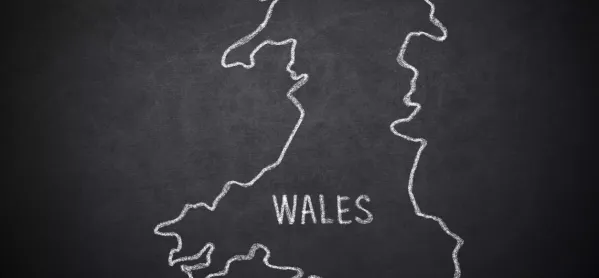Wales has made significant progress in maths but still lags behind the rest of the UK in reading, this year’s Pisa tests reveal.
The results published today show that the country’s scores in reading, maths and science are now close to the average for countries in the Organisation for Economic Cooperation and Development, having previously been significantly below it.
In each of the three tests, the nation’s score was higher than it was three years ago.
Quick read: Pisa data is ‘under used’ academic warns
Background: No evidence that exams lead to anxiety says Pisa boss
Exclusive: England opts out of new creativity test
Wales has also seen an increase in its proportion of top performing learners - which was a goal set by the government after the Pisa test results from 2015.
This year, the number of high-performing Welsh students in reading rose from 3 per cent in 2015 to 7 per cent.
In maths there was an increase from 4 to 7 per cent and in science from 4 to 5 per cent.
Wales’ plan for a new curriculum for schools, to be launched in 2022, highlights poor outcomes in the last Pisa tests in 2015 as part of the case for change.
Wales’ minister for education, Kirsty Williams said: “For the first time ever, Wales is in the international mainstream, thanks to the efforts of our teachers and students”
Wales’ score in reading tests was 483 in today’s figures, compared with 477 three years ago.
Its maths score improved from 478 in 2016 to 487. And in science it improved from 485 to 488.
A report by the National Foundation for Educational Research (NFER) says that, although Wales still lags behind the rest of the UK on reading, its results for maths and science were now similar to Scotland and Northern Ireland.
English pupils still score significantly higher than their Welsh peers in both these subjects.
An NFER report analysing the performance of Welsh pupils says scores in maths Pisa tests have been on an upward trend since 2012.
It finds that Wales’ performance is significantly higher than the results seen in the tests sats in 2009 and 2012.
Ms Williams said: “We have caught up, we are continuing to improve in all areas and as a nation we must be determined to keep up this momentum.
“This is positive for teachers, parents and students and the nation as a whole, but not perfect. We can go further still.”
“Our increase in high-performers is a big step forward. It’s a culture change for Wales. But there’s still more to do, as we’re not quite at the OECD average for this aspect yet.
“We are heading in the right direction with our reforms. Our National Mission has charted the right course. The OECD are telling us to move forward with confidence.
“That’s why we are delivering the biggest ever investment in our teachers, have developed the biggest ever professional learning programme and are striding ahead with our new curriculum.”
A NFER analysis for Northern Ireland’s results show that for the first time since it started taking part in Pisa tests, 15-year-old pupils performed significantly above the average for OECD nations in reading, scoring 501, compared with 497 three years ago.
Its results in science were 491 compared with 500 three years ago. And in maths its score was 492, compared with 493 in the previous test.





